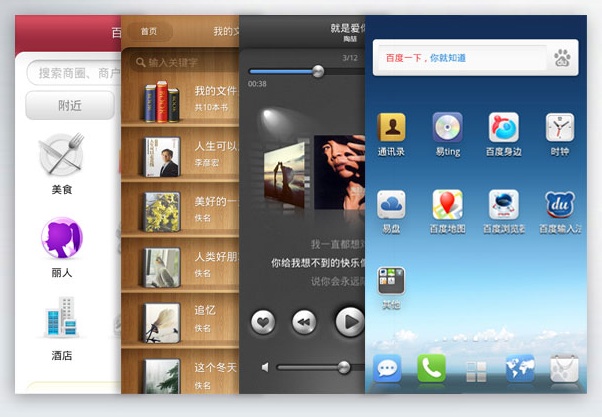Dell to make Baidu-backed smartphones for China

Dell has signed a deal with Chinese web services giant Baidu to make smartphones based on the upcoming Android-based Baidu Yi operating system.

Dell has signed a deal with Chinese web services giant Baidu to make smartphones based on its forthcoming Baidu-Yi mobile OS. Photo credit: Baidu/ZDNet.com
Baidu announced plans on Friday to launch its own mobile OS, Baidu Yi. The company offers a similar set of services to Google — including email, mapping and search — and is now looking to extend its business into its domestic mobile market.
"We can confirm Dell's partnership with Baidu for smartphones in China by participating in Baidu's Mobile Terminal Union," a Dell spokeswoman told ZDNet UK on Tuesday. "At this stage we do not have any further details such as product info or a launch date to share."
While Baidu has ties with Microsoft — it based its desktop browser on Internet Explorer — the company has modelled its mobile OS on the Google-backed Android platform. Baidu Yi contains many of the same features as Android, such as single sign-on for services.
'Ecosystem battle'
However, unlike any other implementation of Android, Baidu Yi will use the Baidu search, maps and email services. It essentially mirrors the Google OS but without the 'Google experience' elements, according to Gartner mobile analyst Carolina Milanesi.
"This looks to me more like an ecosystem battle than about building a better OS, or even what consumers want. It's more about not leaving [Chinese] consumers to Google and Apple, from an experience perspective," Milanesi told ZDNet UK.
Smartphone adoption in China is set to hit 900 million users,
according to figures released in March by the country's Ministry of
Industry and Information Technology. Apple has 8.3 percent of that
total, making it the iPhone seller's fastest-growing market, the company's then-chief operating officer Tim Cook said in April.
Milanesi noted that Texas-based Dell looks like the logical partner for Baidu Yi, as other manufacturers with "a more proven track record" in the Chinese handset and tablet market, such as Lenovo and Motorola, are more intimately tied to Google and its Android OS.
"It's about stripping out the Google experience to make their own experience. Motorola obviously now can't do that [since Google bought it]. Lenovo has invested so much in Android now, from a tablet perspective, and so are unlikely to want to rock the boat with their relationship with Google. Dell is what's left really," she said.
However, Milanesi also noted that Dell has already had limited forays into the Chinese mobile market. "Dell has tried to go after the Chinese market in the past with its mobile offerings, with limited success," she said.
Get the latest technology news and analysis, blogs and reviews delivered directly to your inbox with ZDNet UK's newsletters.